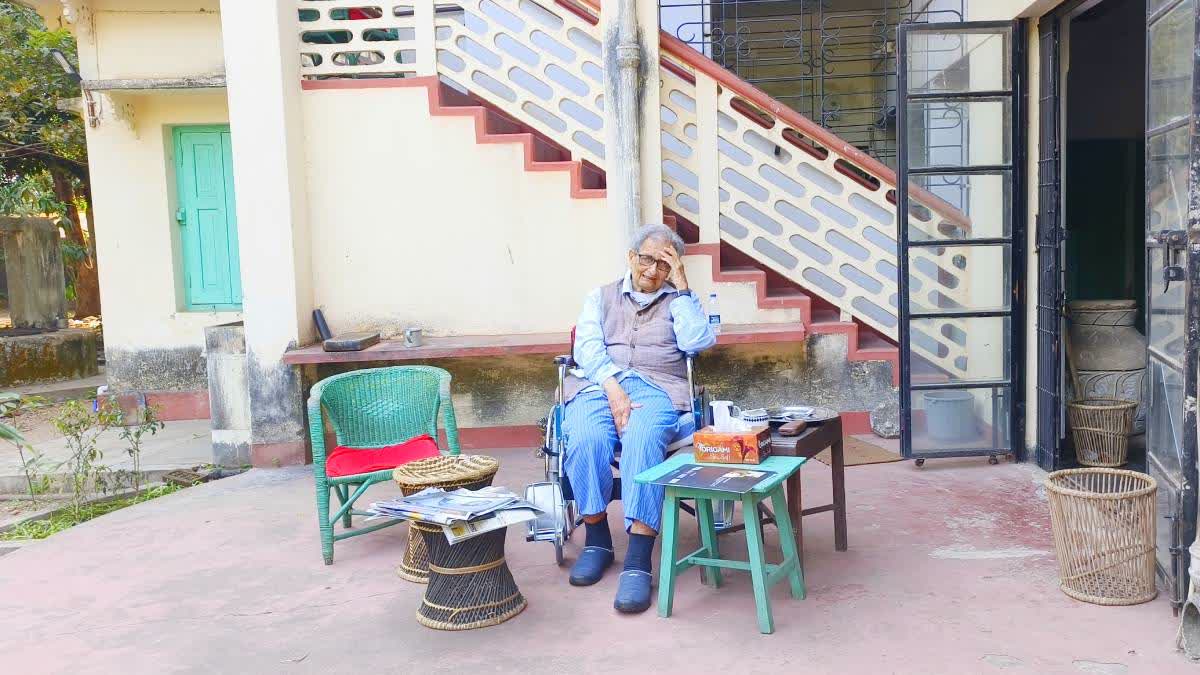Bolpur: Always a staunch critic of communalism, Nobel laureate Amartya Sen on Monday said the growing communalism spells danger for Indian society and polity and the method of former Prime Minister Manmohan Singh to tackle the social malady is still effective and should be followed by the current dispensation.
Speaking to ETV Bharat from his Santiniketan home, Pratichi, the Thomas W Lamont University Professor and Professor of Economics and Philosophy at Harvard University, said unemployment is a serious issue and Singh took a progressive approach to its eradication.
According to the opposition parliamentarians, the Union Budget 2025-26 is silent on unemployment and the Mahatma Gandhi National Rural Employment Guarantee Act (MGNREGA) and Sen agreed to that.
"MNREGA guarantees employment to the people of rural areas. Singh considered creating employment as the main factor of national prosperity which will percolate to the lower strata of the society," he said.
During Singh's demise, Sen was abroad. The rapport between the two economists is well known. "His (Singh) death is an irreparable loss as he had profound thoughts on economy and politics. I think his prime ministership translated into various developments of the country," Sen said.
"There are many things to learn from Singh's approach to communalism in politics and the current voice of communalism can be tackled by that approach. It needs a well-thought decision to thwart such communal flare-ups," the nonagenarian added.
Sen has always been vocal against communalism. ETV Bharat published a comment of him on January 12, 2024, 10 days ahead of the consecration of Ram Mandir in Ayodhya. The entire country wore a festive look and was floated in the Ram saga.
In an email query, Sudipta Bhattacharya, a professor at Visva Bharati, asked Sen about his suggestions on the communal situation in the country at that time. In reply, Sen said he wanted to see Bengal as the centre stage of anti-communalism and should showcase the dark side of it. For this, those with an anti-communal mindset should come forward to politics to make people aware of its lurking danger.
"The main issue confronts today's Bengal is to stand by secularism. It needs to be insulated. Despite having a long period of secularism, its losing essence. The politics in Bengal should be free from religious colour and it will be a blunder to let the secular politics lost. Moreover, the unified identity of Bengal should not go into oblivion," he wrote.
Reminiscing his grandfather, Sen wrote, "My grandfather, Kshitimohan Sen, explained that the Hindu-Muslim unity is not about tolerating each other but to work hand-in-gloves."
Sen has also been a critic of the BJP government in the Centre since it came to power in 2014. His criticism is not only bound to the realms of the economy but expands to the education policy, which he terms the "saffronisation of education" which will become a curse to future generations.
Sen was the chancellor of Nalanda University and was a member of its governing body following his step down. But that was before the BJP came to power. In 2016, he wrote a letter to the governing body of the university, refusing to continue as the chancellor for the second term, as he is disliked by the BJP. The letter created a stir in the political corners.
Sen was also at the receiving end of the censures by BJP's central ministers and leaders. Even the Bengal BJP leaders didn't spare him, commenting on his personal life in public. But Sen was unfazed by this all.
Also Read:



